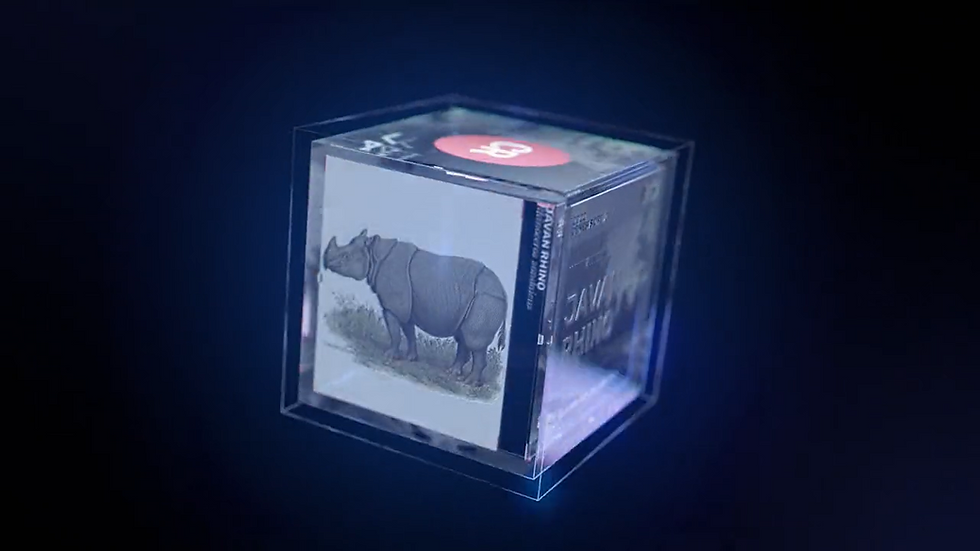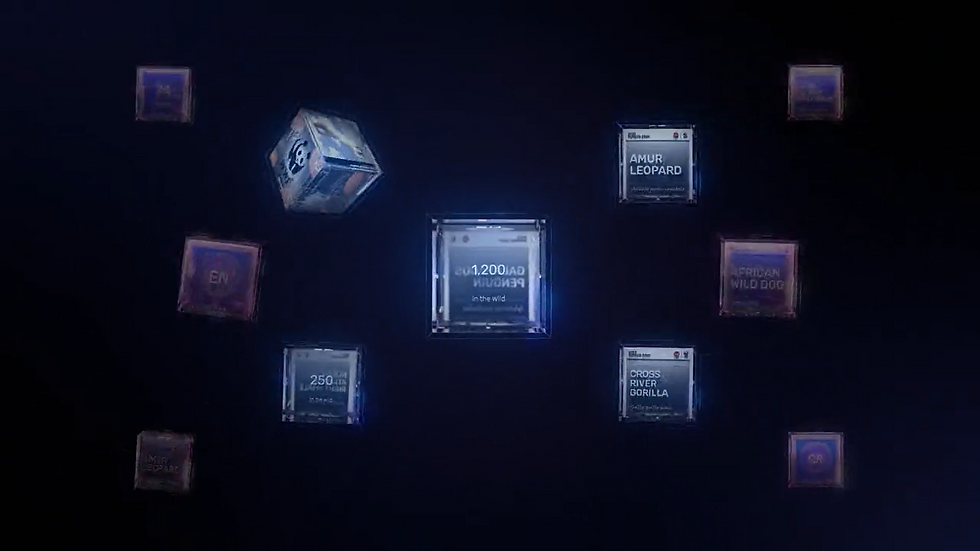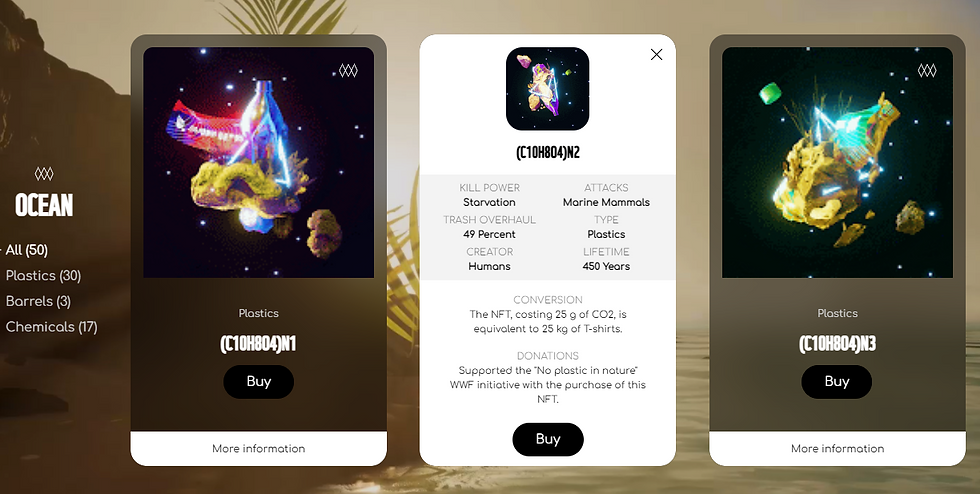WWF UK's Innovative Use of NFTs for Conservation
- Mufaddal K.
- May 12, 2023
- 3 min read
Updated: Nov 6, 2023

The World Wildlife Fund (WWF), a leading conservation organization, has been at the forefront of environmental preservation since its founding in 1961. With operations in nearly 100 countries, the nonprofit focuses on critical global issues, such as climate change, freshwater, forests, oceans, wildlife, food, and sustainable cities. In an innovative move, WWF UK used non-fungible tokens (NFTs) to raise funds, demonstrating how traditional nonprofits could leverage emerging digital technologies for their cause.
The Campaign
Launched on February 3rd, 2022, WWF UK embarked on a unique fundraising campaign using NFTs. The funds raised from this campaign were allocated towards conservation work. Within two days, the organization had sold 174 NFTs and raised $46,600. With 256 users holding a token in their wallet, it's likely that some NFTs were given away as well. The campaign also instituted a 10% royalty fee on the resale of the NFTs, ensuring continued funding for WWF UK's conservation efforts.
The NFTs
The NFTs were built on the Polygon blockchain platform, featuring the 13 most endangered species worldwide. Each animal was represented by a unique NFT, designed by different artists, including some from the WWF itself. The collection comprised about 7,900 NFTs, corresponding to the actual number of living members of each species in the wild. The NFTs were cube-shaped, with details about each animal.

The NFTs, depicting endangered animals such as the giant panda, Galapagos penguin, and cross river gorilla, cost between $150 and $750 to mint. The most expensive NFT was a digital representation of a Tapanuli orangutan, which fetched $2700.
Marketing Strategies & Discord
WWF UK announced the launch to their Twitter followers and collaborated with World of Women and Cyber Kongz NFT holders. Three days before the launch, they initiated a giveaway of 15 NFTs, with two reserved exclusively for World of Women NFT holders and two for Cyber Kongz NFT holders. This led to high engagement, with many Twitter users sharing their favorite among the 15 animals.
To facilitate the giveaway, WWF UK created a pre-sale list via their Discord server. The server was token-gated to NFT holders, attracting nearly 300 members who remained active a year and a half later. Interested parties had to join the Discord to learn more about the giveaway.
Rewards and Benefits
The NFTs offered rewards, including access to WWF events, adding more value to the tokens.
The Trial and Its Aftermath
The NFT fundraiser ran as a two-day trial and was closed on February 4th due to environmental concerns from parts of their donor base. This prompted Polygon Labs to commission research scrutinizing emissions and exploring the relationship between Layer 1 (Ethereum) and Layer 2 (Polygon) blockchain dynamics.
Polygon Labs committed to going carbon-neutral starting in 2022 with the help of KlimaDAO. When Ethereum successfully completed the Merge in September 2022, the network's emissions were cut by 99.9%. As a layer 2 chain on Ethereum, Polygon saw a significant reduction in its emissions from this as well.

Source: Polygon Labs
Encouraged by Polygon's environmental strides, WWF Germany returned to the platform in early 2023 to build a Metaverse project named SaveYour.World. This project aims to educate users about the plastic and trash crisis in the seas and encourage action through a "play to donate" approach. By creating a hybrid metaverse, where online interactions result in real-world consequences, players can remove real trash from the ocean by buying trash NFTs.

Lessons and Impact
The WWF UK's Endangered Animals NFT Fundraiser Trial was a bold experiment in utilizing NFTs for a cause. Despite the initial pushback from some of its donor base, the campaign was successful in raising substantial funds and awareness for endangered species.
Perhaps most importantly, the trial paved the way for further innovations in the intersection of conservation and technology. The subsequent launch of SaveYour.World, a Metaverse project aimed at tackling ocean pollution, is a testament to this. By gamifying conservation efforts, WWF UK has found a new way to engage donors and make a tangible impact on the environment.
Overall, the campaign demonstrated the potential of NFTs as a tool for nonprofits, not just for fundraising, but also for raising awareness, engaging the community, and driving action towards their cause.
WWF UK's innovative use of NFTs showcases how traditional nonprofits can leverage emerging digital technologies such as web3 and NFTs to further their mission. Despite challenges, the organization managed to turn the experiment into an opportunity to educate, engage, and raise substantial funds for conservation work. Their experience serves as a valuable case study for other nonprofits exploring the potential of blockchain and NFTs in their operations. The key takeaway is that with careful planning, clear communication, and a willingness to innovate, nonprofits can effectively tap into new technologies to drive their mission forward. And Panxpan is here to help you make that journey.
